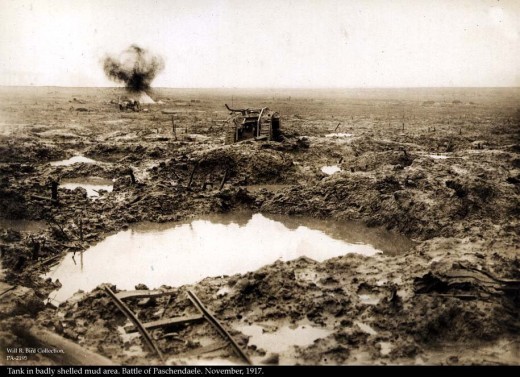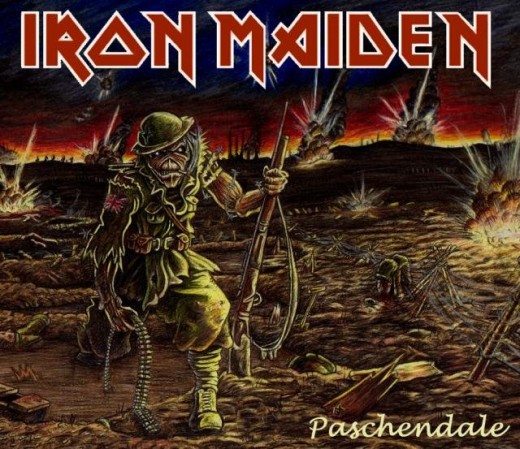The Ethics Of War
When we get into criticizing war, we need to ask ourselves a question: was a war that occurred between two countries justified as a method of solving tensions between them. Ethics is a science that primarily questions morals of people and all other sensible creatures, but that science might not be able to solve the question of war. Ethics can only solve the role of an individual in war, is that individual responsible for its outbreak and further development.
We should know that politics is always directed towards the possibility of war. Every diplomatic step has the possibility to lead to war, and that’s why every step needs to have a sort of “backup” or coverage. As your credit card has coverage on your bank account, as every currency has its coverage in the international economy, that’s how every diplomatic step has coverage in population and weapons which can be applied to bring diplomatic decisions to a desired goal. Politics treats war just like a threat by force treats force itself. The one who threats by force (eg. a state) needs to be able to use that force even contrary to the will of the carrier of the force (population, people). So, state can use its authority to apply general mobilization and drag all able men from their workplaces to battlefield – that is an example of using force despite the will of the force carrier. People are force carriers, and the head of the state is just a little pile of meat, bones and excrement – but he has the authority, and such are people (politicians) around him. If all generals of an army gathered together, they wouldn’t have enough power to resist another army or either to their own people if people refused to get mobilized. It is the same with college or high school professors – altogether they could just extinguish the candles and close the inn if there aren’t any students to attend their classes. Their power rests on number and quality of students, just like the power of a ruler rests on its people and that’s why they need to keep masses of people on a tight leash so that a ruler would need just a single hand movement to mobilize them because they are, in one part too frightened by ruler’s authority, in the other part they cultivate a collective spirit which is against individual’s refusal to go to war, and partly people are inspired by nationalism. If somebody refused to serve in the army or to go to war, people would mock him, make fun of him, ostracize or imprison him. Like it is some big deal to be able to kill somebody. Anybody can kill, you don’t need to be very intelligent to kill somebody – even an idiot can do it. There is an interesting story of Gautama Buddha: Buddha was walking on a mountain path and some bandit jumped out of the bush and threatened to kill him. Buddha said that “I have nothing against it, but you wouldn’t accomplish much.” The bandit was puzzled, so Buddha told him to tweak that little branch from a nearby tree. So the bandit tweaked it. Buddha then said: “Now put it back on a tree and make it grow again.” The bandit understood the message immediately: it is very easy to kill, as it is easy to tweak a branch. But to fix things, or to give a new life to somebody, that is not that easy. But we are used to fixing things by killing each other, and that way we are acting like idiots and are not accomplishing anything.
I have always wondered what is that single thing that a man needs to have in his head to be able to WILLINGLY go to war, and my friend answered that only stupidity is needed. Then I started wondering why are there so many intelligent people who proudly and positively sing about war (in general) and heroic deeds of war. Here I think of a music genre called black metal. People who engage in that music are surely intelligent and individualistic, and they are affirmative about war. But for them, “war” is just a metaphor for personal war, and that is an example of “moral war” which is primarily against exploitative society, against people who let themselves be exploited, against those of weak spirit. There is no, should we say, any physical contact in that war. When metal music in general sings about war as a conflict it almost always concentrates primarily on the feelings of an individual on a battlefield, on his misery, and questions like “how did it come to this?” and “what will happen next?”, or on his pride because he spilled his own or others’ blood, on euphoria that followed him through the fight, personal hate that he released, on that fact that in the battlefield he felt alive for the first time. Those examples tell us that battle and war can be presented as glamorous because they evoke such feelings as euphoria, glory, pride, catharsis, the feeling of being alive. But it can be done so in poetry and other arts. On the battlefield, things are different. Concerning artistic depiction of war, ancient philosopher Plato offered us his observation. For him, work of art is a depiction of somebody else’s picture of reality, or phantasmagoria. The artist first had to see something with his own eyes, or feel with his senses, but all senses are deceptive. After that, the artist understood that what he saw, but he understood it in his own way, that picture in his head might be distorted by some former experiences. Then, he tries to transport the picture in his head on the paper, and no matter how hard he tried, people will not be able to perfectly understand that which he wanted to say. People are able to contact the artist only through his works, but nobody knows what is happening deep inside him.

Let us assume that some talented poet has been in a war, that he knows how it is like and then he wrote poems to describe it. Those who read that poems could think: yes, that is war, and it is great, I can’t wait to be there myself, to be a hero, so the skies will sing my name. Of course, the reader is cheated, he dreams of a beautiful death and a beautiful battle, but if he ever came to a front, the first sword would cut him before he even started pulling out his sword.
Many people think that war is justified if it is done out of retaliation, or some injustice is involved, but if war should become the only road to justice, then justice would be very inconvenient! It is said that war is the mover of human kind, that it serves a purpose of creating a “new” justice. But if we find justification of war in retaliation then it couldn’t be said that it is used to create new, but rather to keep the old justice, to bring the old condition back again. But neither that is true, since all territories that have suffered war are never the same, many people got killed there, both civilians and soldiers, those territories can never be the same as before the wind of war passed through them. That cannot be called “the new justice”, either.
War cannot have a meaning because winning the war has no sense. War doesn’t enrich national culture as you might think, it just nulls it. National culture is the qualitative determination of people, and militant consciousness – the one that supports war – doesn’t look on people as nations but rather as big groups of human flesh ready to wear uniform. Those most conservative nationalists, the ones that provoke wars, don’t really appreciate their nation as much as they like to talk about it. They don’t appreciate it for it’s culture, traditions, and social features. No, they see their nation as an impersonal force that is ready to stand against the other impersonal force, and justification for that they find in the claim that the other force is “more impersonal”. In my country, for example, there have even been claims that our neighbor nation, the Croats, is a “cloned nation”. That might seem funny to everybody, but there are people who really believe in that!
National costumes are a fine symbol for impersonality of war. In peaceful times, national costumes of every nation are very colorful but in war time, soldiers of all nations wear the same color uniform. The very word uni-form speaks for itself: it is a suit that everybody wears.
Ethics and other branches of philosophy cannot find justification for war. That justification can only be found by religion, because religion sees some higher values in war, it sees something which is not fathomable to us common people. Religion has the same stance towards war as it has for pain. Pain purges, but the infliction of pain is condemned.
We have always seen war as the ultimate way of solving conflict. Maybe it is. And it will be forever. As long as humans are being learned to behave aggressively towards life, war will be inevitable. You might now say that religion justifies war because it causes wars to happen, and has caused them throghout history. And you might be right, but I rather think that the impact of religion on wars is not direct. I think that none of them really wanted to cause conflicts, they were just doing the things that seemed best for themselves – and they were not conscious enough to evaluate what could come out of their deeds.







